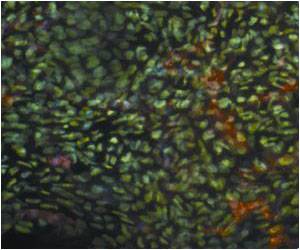
"Umbilical cord blood cells and stem cells derived from menstrual blood are relatively easy to obtain, appear to be able to differentiate into many kinds of cells, and are immunologically immature, offering them the potential to promote cell survival rather than play a cell replacement role when transplanted," said Paul Sanberg, of the University of South Florida.
According to Eduardo Cruz, CEO of Cell PRAXIS BioRio, human umbilical cord blood cells (hUCBs) are limited to collection at the time of birth, but menstrual blood-derived stem cells (MenSCs) could be collected once a month for 40 years from women during their reproductive stage.
MenSCs have been transplanted into animal models of stroke and have been shown to be able to differentiate into a number of neural cell types. Transplanting hUCBs into animal models of stroke, Alzheimer's disease, and ALS has demonstrated their therapeutic potential for reducing inflammation, a key component of many neurodegenerative diseases.
Mercedes Walton, CEO of Cryo-Cell International, Inc, said, "Our breakthrough discovery that menstrual blood cells contain proliferative stem cells that can differentiate into many different types of cells, including cardiac and neural cells, has opened new therapy possibilities."
Studies examining transplantation of MenSCs into laboratory cultures and animal models (in vitro and in vivo) of stroke have demonstrated a potential for protection against oxygen-glucose deprivation.
Advertisement
Similarly, studies using animal models of Alzheimer's disease have found that hUCBs also play an anti-inflammatory role.
Advertisement
"It is likely that hUCBs can modify this inflammatory response and provide beneficial effects in animal models of AD," said Tan.
When hUCB transplantation was studied in animal models of ALS, also a neurodegenerative disease with an inflammatory component, hUCB transplantation was shown to help regulate the inflammatory response by reducing the number of microglia - brain cells that initiate an inflammatory response. In this case, the benefits of injected hUCBs were dose-related.
The findings have been published in the journal Cell Transplantation.
Source-ANI














